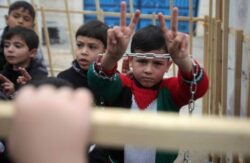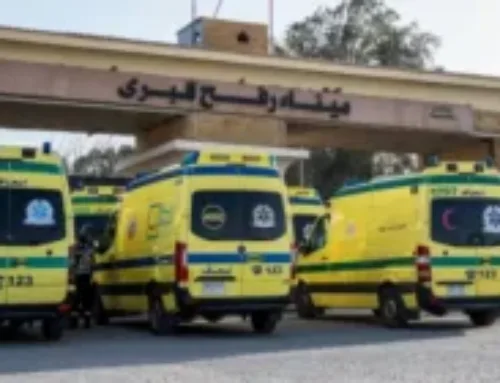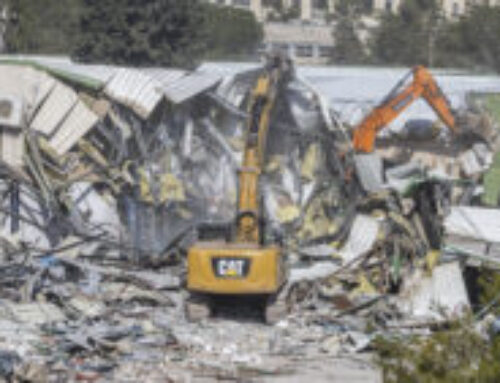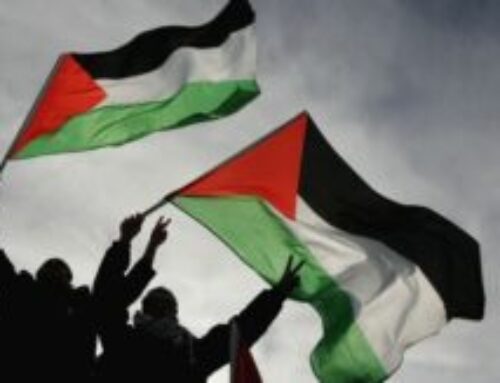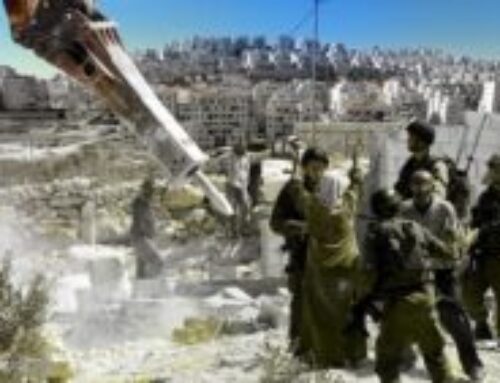In a land long accustomed to resisting even in silence, one of the most painful chapters in the record of humanity is being written today: Palestinian children dragged into prisons, their childhood torn from their parents’ arms, their tender years thrown into the cold corridors of cells that know no mercy.
What is happening now is not merely a continuation of past decades—it is a harsher, more brutal stage, as Palestinian detainee institutions unanimously confirm. The Palestinian child, who has long been a direct target of arrest and abuse, now finds himself inside a rigid system of repression—one that treats childhood itself as a threat, and innocence as a pretext for more violence, more isolation, and more starvation.
Arrest Beyond Numbers… A Descent into Catastrophe
1,630 children have been arrested in a short span during the war in the West Bank, including occupied Al-Quds. Dozens more were abducted from Gaza—some vanished completely under the shadow of enforced disappearance. Today, around 350 children, including two girls, are held in prisons that lack even the bare minimum of humane conditions.
Every number here is a story cut in half—childhood pulled away from time by force.
Most children are arrested at dawn: doors smashed, homes stormed, soldiers’ shouting drowning their breaths. They are forced to stand for hours, shackled and shoved into military jeeps. Their families hear nothing about them for days, swallowed by a silence that feels like oblivion.
A Shock That Begins at the Door… and Deepens in the Darkness of Cells
The brutality begins with the first blow against the door—and never stops. Children are thrown into cramped rooms with no ventilation, no light, no lawyer, no mother to embrace them, no father to calm their trembling. Long hours of interrogation, threats, sleep deprivation, and thirst… an endless chain of psychological torment.
Inside prison, children live in overcrowded rooms, with few clothes and confiscated personal belongings.
Walid… A Name That Holds the Entire Wound
In “Megiddo” prison, child Walid Khaled Ahmed died with a body reduced to exhaustion—his muscles wasted away, his skin marked by sores and rashes, and the sharp signs of starvation revealing that his death was no accident… but the result of a deliberate policy that deprives children of their right to live.
Reports tell this tragedy in cold language—but Walid’s body alone screamed the whole truth.
Gaza… Where Children are Held as Though They were Enemies in a Battlefield
The violations didn’t stop in the West Bank. In Gaza, some children were used as human shields by the forces of the usurping entity; detainees were subjected to severe torture, starvation, thirst, and total isolation. Many of them were labeled “unlawful combatants”—a term that “legitimizes” detaining civilians outside any legal protection.
More than 90 children are held under administrative detention—no charges, no trial, no chance to defend themselves. A crime that turns the law itself into an empty page.
One 17-year-old boy said: “I slept for six months with my hands tied. They gave me no proper clothing, and diseases spread around us. The beatings were daily.”
A Cry Against the Silence
As the world marked Universal Children’s Day just days ago, Palestinian children remain behind bars—waiting for the world to hear their cry.
Detainee rights organizations are calling for urgent international intervention, for activating the International Court of Justice advisory opinion on the illegality of the occupation, for imposing sanctions, for accountability, and for halting the genocide that turns childhood into a military target.
Childhood in Chains… A Conscience on Trial
In a world that claims civilization, the usurping entity tests our ability to watch childhood being tortured—and remain silent.
The story of child detainees is not merely a human-rights file; it is a moral mirror that reveals whether humanity still has meaning.
And until dawn arrives, Palestinian children—with all their wounds—will continue reminding the world that childhood cannot be imprisoned, and that innocence, no matter how tight the walls become around it, will keep knocking on the door of freedom.

